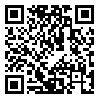Articles accepted at the time of publication
Back to the articles list |
Back to browse issues page
1- Ph.D. candidate in TEFL, Department of English Teaching and Literature, Faculty of Humanities, Hakim Sabzevari University, Sabzevar, Iran.
2- Associate Professor of TEFL, Department of English Teaching and Literature, Faculty of Humanities, Hakim Sabzevari University, Sabzevar, Iran. ,m.davoudi@hsu.ac.ir
3- Assistant Professor of Linguistics, Department of English Teaching and Literature, Faculty of Humanities, Hakim Sabzevari University, Sabzevar, Iran.s.ghaniabadi@hsu.ac.ir
4- Associate Professor of TEFL, Department of English Teaching and Literature, Faculty of Humanities, Hakim Sabzevari University, Sabzevar, Iran.
2- Associate Professor of TEFL, Department of English Teaching and Literature, Faculty of Humanities, Hakim Sabzevari University, Sabzevar, Iran. ,
3- Assistant Professor of Linguistics, Department of English Teaching and Literature, Faculty of Humanities, Hakim Sabzevari University, Sabzevar, Iran.s.ghaniabadi@hsu.ac.ir
4- Associate Professor of TEFL, Department of English Teaching and Literature, Faculty of Humanities, Hakim Sabzevari University, Sabzevar, Iran.
Abstract: (689 Views)
With the increasing prevalence of online education, the significance of students’ self-regulation skills has never been more pronounced. Yet, many students struggle to develop and apply these skills (Bylieva et al., 2021). This transcendental phenomenological study investigates the self-regulation strategies employed by highly self-regulated university students in fully online learning environments. Participants were recruited online based on purposive and criterion sampling procedures. Data were collected through guided journals and semi-structured in-depth interviews, transcribed with Voxtab, and analyzed using Peoples' (2020) phenomenological framework and NVivo 10 software. The result revealed four major themes: meta-affective and affective practices, metacognitive and cognitive practices, socio-affective features, and tech-enhanced learning strategies. The study's trustworthiness was ensured through member checks, purposeful sampling, inter-rater agreement, and debriefing. The findings offer profound insights into students' experiences with online self-regulation. They present students with practical and effective online self-regulation strategies and provide educators with insights into course designs fostering self-regulation.
Article Type: مقالات علمی پژوهشی |
Subject:
language teaching
Send email to the article author
| Rights and permissions | |
 |
This work is licensed under a Creative Commons Attribution-NonCommercial 4.0 International License. |






